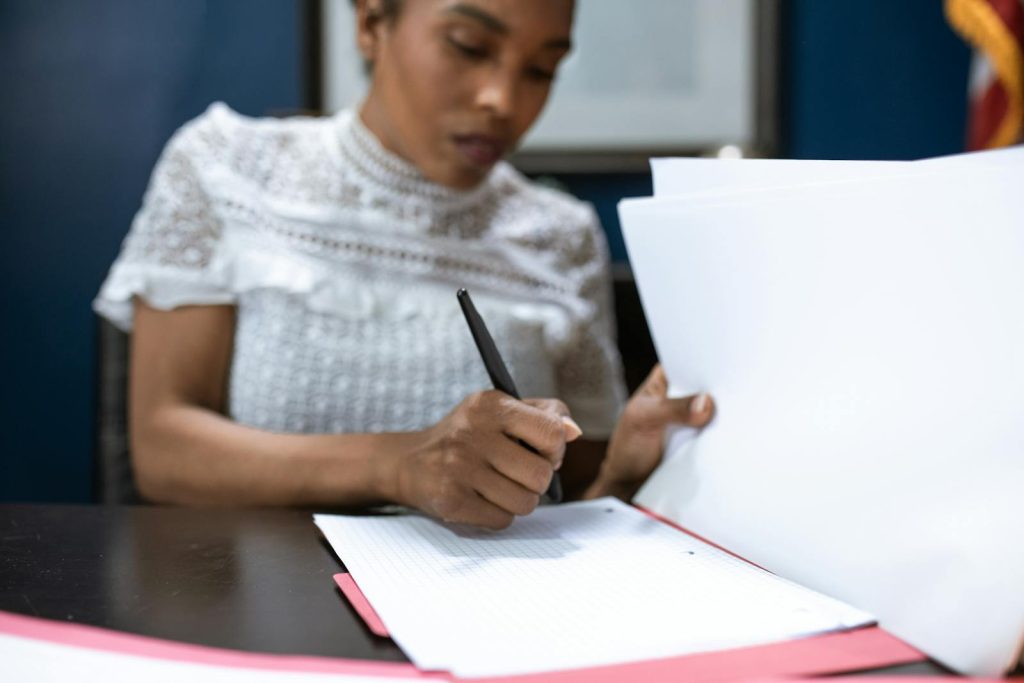Mediation can be a challenging process, but what happens next is often less clear. You might find yourself feeling lost or unsure about the next steps after mediation ends. At Tampa Divorce Attorney, we guide you through every phase, ensuring you know exactly what comes after mediation. Let us help you navigate the complexities that follow and secure the best possible outcome in your divorce journey.
As indicated in the American Bar Association, if mediation fails, the next steps often involve arbitration or litigation. In arbitration, a neutral third party makes a binding decision. In litigation, the dispute is resolved in court.
Steps to Take After Mediation Ends
Reviewing and understanding the terms and agreements reached during mediation is very important to ensure their correct implementation.
In other words, take some time to think about the talks you had and how they might affect your situation.
Then, make sure you follow up on any actions or decisions from the mediation. This could mean setting things up, meeting your responsibilities, or asking for more help or advice. It’s important to stick to your agreements to keep the mediation successful.
At its heart, also, keep talking with everyone involved in the mediation. This ensures everyone is on the same page and quickly clears up any issues or misunderstandings.
Lastly, consider getting ongoing help or advice from a counselor, therapist, or other professional if you need it. Mediation is just a step towards fixing things, so keep working towards a positive future.”
Understanding Post-Mediation Options
After mediation, participants can explore various pathways to ensure lasting resolutions.
In essence, after mediation, you have several choices:
1. You can agree with the other party. This written agreement is legally binding and can be enforced in court if needed.
2. You might decide to end the mediation without any agreement. In this case, you can try other ways to resolve the dispute, like arbitration or going to court.
3. Honestly, you can continue with more mediation if you feel you are making progress and getting closer to an agreement.
4. You might also choose to stop mediation and look for other solutions. This could mean getting advice from a lawyer or trying other methods to resolve the issue.
The best option depends on your specific situation and what you and the other party prefer.
What Happens Next After Mediation?
Combining past discussions about post-mediation, the mediator crafts a settlement agreement reflecting the session’s results.
To be brief, this agreement will lay out the terms both parties have agreed to to settle their dispute. After the agreement is final, each party can review the document with their own lawyer before signing it.
Once both parties sign the settlement agreement, it becomes a binding contract. Both sides must follow the rules stated in the agreement. In some cases, the agreement might need to be filed in court to make sure it is followed.
When it comes down to it, if one party does not follow the agreement, the other party may seek legal action to enforce it. This could involve going back to court or engaging in more mediation or arbitration.
The goal of mediation is to help both parties reach an agreement that satisfies them in a cost-effective and timely way. By working with a neutral third party, they can often avoid the time, expense, and uncertainty of going to court. The mediation process works best when both parties are willing to cooperate.
Legal Actions to Consider Post-Mediation
Carrying on from past thoughts, after a mediation, parties often formalize the agreement through court orders or written contracts to ensure enforceability.
In short, after agreeing to mediation, you might need to draft a settlement agreement or consent order. This can help clearly lay out the terms you’ve agreed on and protect everyone involved if issues come up later.
It’s very important to make sure the agreement you reached in mediation is legally binding. This often means you need to file the right paperwork with the court and get a judge to approve it, making it official. In general terms, you might also have to take more legal steps to meet the terms of the agreement, like transferring property, making payments, or completing other responsibilities mentioned in the agreement.
It’s a good idea to get advice from a lawyer to make sure everything is done correctly and to protect your rights. If you don’t take the right legal steps after mediation, the agreement might not hold up in court, and you could end up in more legal trouble.
Follow-Up Steps After a Mediation Agreement

From what has been mentioned before after a mediation agreement is reached, it’s crucial to finalize the terms and clarify each party’s responsibilities, ensuring a smooth transition and effective implementation of the agreement.
You might need to write a formal agreement listing the settlement’s terms and conditions. Everyone needs to read the document carefully to make sure it matches what was agreed on during mediation.
Once the agreement is ready, everyone should sign it to show they accept the terms. Each person should get a copy for their records and keep it somewhere safe and easy to find in case they need it later.
Essentially, after signing the agreement, everyone needs to stick to what they promised, whether that’s making payments, providing services, or doing other actions discussed during mediation. Open and honest communication is key to making sure everything goes smoothly.
Sometimes, it helps to have a follow-up meeting to talk about how the agreement is working and deal with any issues. This ensures everyone is happy with the results and that the agreement is being followed properly.
Rounding it Up
As we agreed before, Um, so ending this, what comes after mediation is a resolution that both parties have agreed upon. This resolution is legally binding and provides closure to the dispute.
What Tampa Divorce Attorney is preferring you think about is, it allows for a peaceful and collaborative solution to be reached, instead of resorting to costly and time-consuming legal battles. Mediation is a valuable tool in resolving conflicts and promoting healthy communication between individuals or groups.







